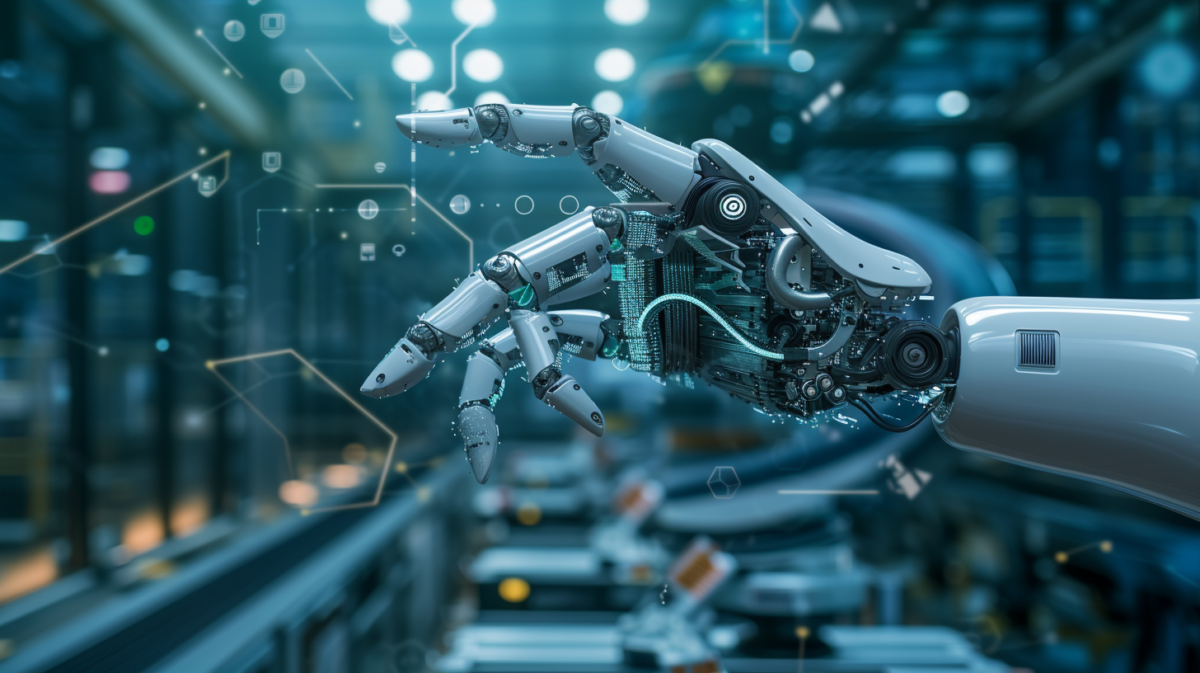The landscape of supply chain management is undergoing a dramatic transformation, driven by the rapid advancements in Artificial Intelligence (AI). In an era where efficiency, speed, and precision are paramount, AI is reshaping how supply chain operations are conducted. Integrating AI into supply chain management is not just a trend but a fundamental shift towards efficient, and responsive systems.
AI-Driven Transformation in Supply Chain Management
Predictive Analytics
One of the most significant contributions of AI to supply chain management is predictive analytics. By leveraging data, AI algorithms can forecast demand, anticipate supply chain disruptions, and suggest proactive measures. This foresight enables companies to optimize inventory levels, reduce waste, and improve operational efficiency.
Enhanced Visibility and Transparency
AI-driven tools provide unprecedented visibility into supply chain operations. Real-time tracking of goods, from manufacturing to delivery, ensures transparency and helps identify bottlenecks. This oversight is crucial in maintaining the integrity of the supply chain.
Automated Warehousing and Robotics
The advent of AI has revolutionized warehousing operations. Automated guided vehicles (AGVs), robotic picking systems, and smart inventory management solutions reduce human error and increase productivity. These innovations speed up the warehousing process but also significantly reduce operational costs.
Self-Driving Delivery Vehicles
Self-driving vehicles are transforming the last mile of the supply chain. These autonomous vehicles, powered by AI, can navigate complex routes, reduce delivery times, and lower transportation costs. Moreover, they offer a sustainable alternative by potentially reducing carbon emissions.
AI-Powered Supply Chain Analytics
Advanced analytics powered by AI is enabling focused insights into supply chain operations. Businesses can make data-driven decisions to optimize routes, reduce transit times, and improve customer satisfaction by analyzing patterns and trends.
Smart Contracts and Blockchain
AI, combined with blockchain technology, is paving the way for smart contracts in supply chains. These digital contracts automatically execute and enforce agreements, reducing the need for intermediaries and ensuring transparency.
Enhanced Customer Experience
AI is not just about optimizing operations; it’s also about enhancing the customer experience. Predictive algorithms can provide personalized recommendations and improve service delivery. AI-powered chatbots and virtual assistants are revolutionizing customer interaction, offering instant, 24/7 support.
Challenges and Considerations
Despite the promising potential of AI in supply chain management, some challenges and considerations still exist:
Data Privacy and Security
The reliance on vast amounts of data raises concerns about privacy and security. Ensuring the protection of sensitive information and compliance with regulations like GDPR is paramount.
Ethical Considerations
The deployment of AI must be guided by ethical considerations, particularly regarding employment impacts and decision-making transparency.
Infrastructure and Investment
Implementing AI solutions requires significant investment in infrastructure and technology. Companies must weigh the costs against the potential benefits and ROI.
Skills Gap
There is a growing need for skilled professionals to manage and interpret AI-driven supply chain systems. Bridging this skills gap is essential for the successful integration of AI.
The Road Ahead
Looking forward, the role of AI in supply chain management will only grow more critical. We can expect to see:
Continuous Innovation
AI technology is evolving rapidly, promising even more sophisticated solutions for supply chain challenges.
Integration with Other Emerging Technologies
The convergence of AI with technologies like IoT, 5G, and augmented reality will further enhance supply chain efficiency and capabilities.
Sustainable Supply Chains
AI helps to create sustainable supply chains, optimize resources, and minimize environmental impact.
Global Supply Chain Networks
AI enables the creation of more resilient global supply chains. The future of AI in supply chain management is not just promising; it’s already unfolding. Companies that embrace AI-driven solutions will gain a competitive edge and contribute to more efficient supply chains. The journey towards this AI-enabled future is exciting and challenging, requiring a thoughtful approach that balances innovation with ethical and practical considerations. The potential benefits, however, make this journey essential for the evolution of the supply chain industry.
